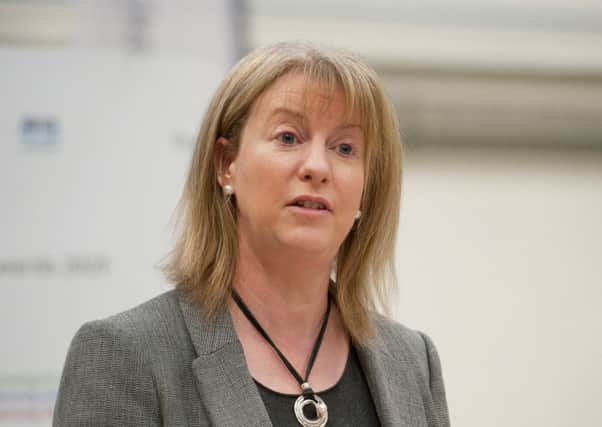Where next for the NHS in Scotland?


The investigation revealed radical proposals for 19 hospital closures, changes to A&E and maternity care and rationing for operations.
But in the face of a £22 billion black hole, drastic change was perhaps inevitable.
Advertisement
Hide AdAdvertisement
Hide AdIn Scotland, the health service is also not without its problems. Missed targets, budget squeezes, staff vacancies and pressure on the workforce have dominated headlines.
With health fully devolved, and the country much smaller and far less densely populated, Scotland’s service looks healthier than its southern sister. But that doesn’t mean change is not on the horizon.
For months, health professionals and unions have called for a realistic and honest debate about what the health service in Scotland can continue to deliver faced with increasing demand, an ever-ageing population and limited funding.
Dr Peter Bennie, chairman of the British Medical Association in Scotland said: “In Scotland, we have a significant problem with recruitment and retention.
Advertisement
Hide AdAdvertisement
Hide Ad“The fact is that the workforce in the NHS are working above and beyond what is expected of them just to keep things going and that really stupendous work and effort of the doctors and nurses is something that is not always recognised.”
One of the BMA’s major concerns has been in general practice.
At present, 28 per cent of all Scotland’s GP surgeries have at least one doctor vacancy and, of those who are in post, a third plan to retire in the next five years.
So the association was quick to welcome a funding boost of £71.6 million announced by the government on Friday.
Advertisement
Hide AdAdvertisement
Hide AdIt will go directly to the GP service in Scotland in a bid to tackle recruitment.
The money comes from a larger fund which will be aimed at beefing up primary care to treat people for longer at home or in the community.
It’s an integral part of strategic plans produced last year by the Scottish Government which promote a fundamental change in the way the NHS operates.
It wants to move away from a ‘fix and treat’ approach and ease pressure on the service by making hospital care less common.
Advertisement
Hide AdAdvertisement
Hide AdThe vision strives for greater integration with social care, increased community-based treatment and stronger health promotion to prevent illness in the first place, making people more responsible for their own care.
For those who do need to be hospitalised, day surgery and quicker discharge will become the norm.
The government is also aiming to regionalise some hospital services, recruit more GPs and nurses, and free up beds by reducing “inappropriate” stays.
In January, 44,222 days were spent in hospital by people who were medically well. Of the 1482 people delayed in their discharge, 70 per cent were 75 and over, while 24 per cent were waiting on a care home place.
Advertisement
Hide AdAdvertisement
Hide AdDr Bennie added: “The strategy’s principals are right; we do need to make sure care is available closer to home so we need to beef up primary care. The difficulty comes when you try to do that.
“Bridge funding needs to be in place before you close down a vital service like hospitals and the structure for the replacement service has to be running well.
“So you are effectively running the two systems in parallel and finding that bridge funding in a time of budget constraints is very challenging.”
Colin Poolman, senior officer at the Royal College of Nursing Scotland said: “There is an argument that people should help themselves, but they need care, education and support to do that. We need to be honest with the public about how care can be provided and that means less rhetoric and fewer statements to appease the press. Where are the extra resources coming from for these health and social care organisations?
Advertisement
Hide AdAdvertisement
Hide Ad“Health boards have been making savings over the years and we produce good outcomes for patients the majority of the time.
“But now, many of our members tell us they are exhausted and there’s no slack left in the system.”
Gavin Fergie, Unite lead professional officer for health in Scotland said: “The system is under immense pressure. There may be more funding for the NHS but we still have crippling recurrent savings each year.
“This year, it was to the tune of around £279 million. We’re giving it with one hand but taking it away with the other. We need to ask: should Scotland pay more into the NHS and, if it doesn’t, we need to have a realistic debate about we can do.
Advertisement
Hide AdAdvertisement
Hide Ad“We are extremely fortunate in Scotland that we have a skilled workforce but there is only so much anyone can do. Unpaid work is done in public service; in the NHS, it’s keeping it on its feet.”
Health Secretary Shona Robison said: “This government has delivered record levels of funding and an all-time high number of health service staff. The draft budget for 2017/18 allocates more than £13 billion to health services – the highest figure ever.
“This includes extra funding for social care and additional spending on frontline NHS services.
“Next year our territorial health boards will receive increased funding of £186 million, with a further £128 million during the year.
Advertisement
Hide AdAdvertisement
Hide Ad“By the end of this Parliament our annual investment in primary and community care will be increased by £500 million.
“It will begin the transformation outlined in our national clinical strategy which puts a strong emphasis on good quality community care services, accessible local acute facilities and regional or national centres of clinical expertise.”